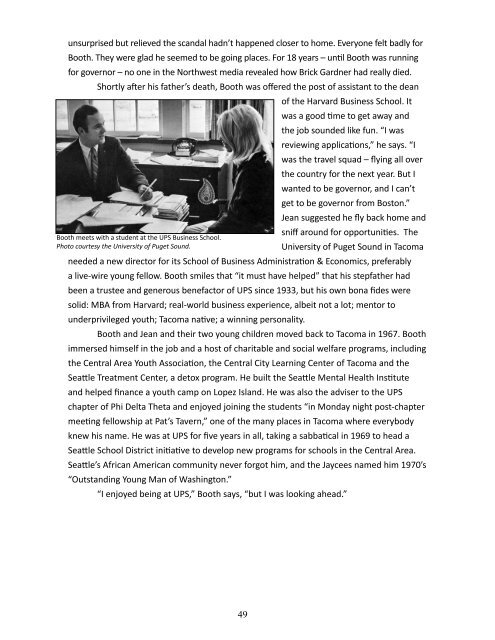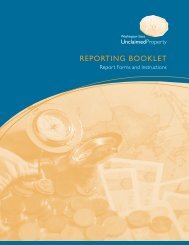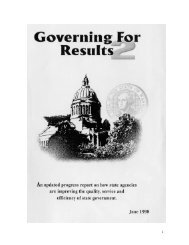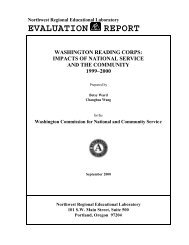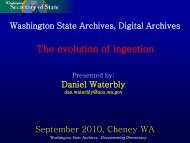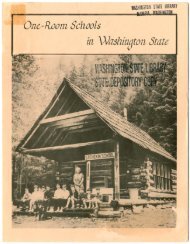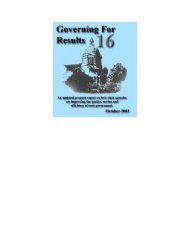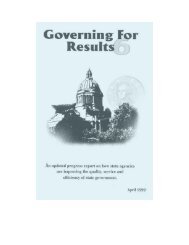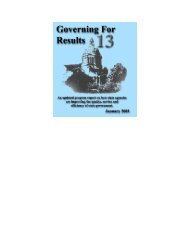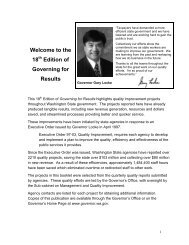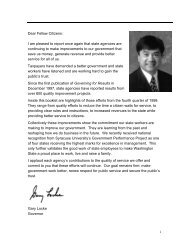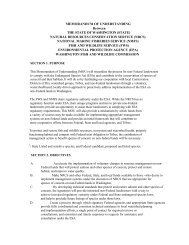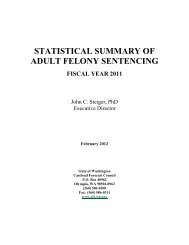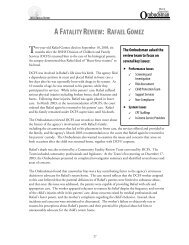BOOTH WHO? - Washington State Digital Archives
BOOTH WHO? - Washington State Digital Archives
BOOTH WHO? - Washington State Digital Archives
You also want an ePaper? Increase the reach of your titles
YUMPU automatically turns print PDFs into web optimized ePapers that Google loves.
unsurprised but relieved the scandal hadn’t happened closer to home. Everyone felt badly for<br />
Booth. They were glad he seemed to be going places. For 18 years – until Booth was running<br />
for governor – no one in the Northwest media revealed how Brick Gardner had really died.<br />
Shortly after his father’s death, Booth was offered the post of assistant to the dean<br />
of the Harvard Business School. It<br />
was a good time to get away and<br />
the job sounded like fun. “I was<br />
reviewing applications,” he says. “I<br />
was the travel squad – flying all over<br />
the country for the next year. But I<br />
wanted to be governor, and I can’t<br />
get to be governor from Boston.”<br />
Jean suggested he fly back home and<br />
sniff around for opportunities. The<br />
University of Puget Sound in Tacoma<br />
needed a new director for its School of Business Administration & Economics, preferably<br />
a live-wire young fellow. Booth smiles that “it must have helped” that his stepfather had<br />
been a trustee and generous benefactor of UPS since 1933, but his own bona fides were<br />
solid: MBA from Harvard; real-world business experience, albeit not a lot; mentor to<br />
underprivileged youth; Tacoma native; a winning personality.<br />
Booth and Jean and their two young children moved back to Tacoma in 1967. Booth<br />
immersed himself in the job and a host of charitable and social welfare programs, including<br />
the Central Area Youth Association, the Central City Learning Center of Tacoma and the<br />
Seattle Treatment Center, a detox program. He built the Seattle Mental Health Institute<br />
and helped finance a youth camp on Lopez Island. He was also the adviser to the UPS<br />
chapter of Phi Delta Theta and enjoyed joining the students “in Monday night post-chapter<br />
meeting fellowship at Pat’s Tavern,” one of the many places in Tacoma where everybody<br />
knew his name. He was at UPS for five years in all, taking a sabbatical in 1969 to head a<br />
Seattle School District initiative to develop new programs for schools in the Central Area.<br />
Seattle’s African American community never forgot him, and the Jaycees named him 1970’s<br />
“Outstanding Young Man of <strong>Washington</strong>.”<br />
“I enjoyed being at UPS,” Booth says, “but I was looking ahead.”<br />
Booth meets with a student at the UPS Business School.<br />
Photo courtesy the University of Puget Sound.<br />
49


